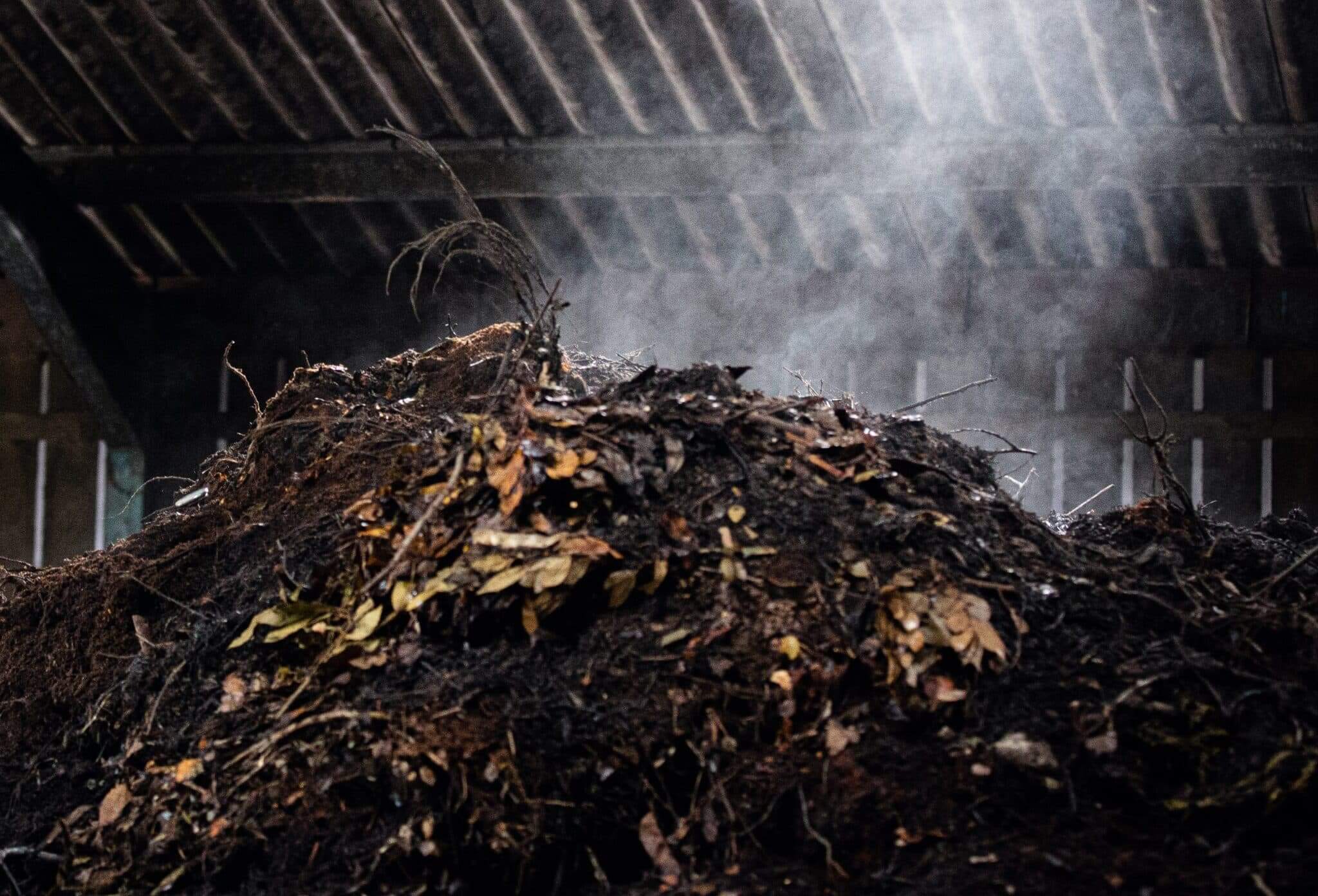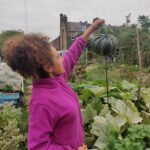As a gardener, I spend a lot of time rummaging around compost heaps, optimising the decomposition of garden waste, rotten veg, sawdust and cardboard. At a local community garden in South London, we have been troubleshooting the compost toilet, which has inadvertently become a cesspit instead of the intended harmonious nutrient cycling system. I say we, but my involvement is for the most part trying to keep the look of disgust off my face as my friends Jack and Laura venture in, hazmat-suit-clad, to assess the situation.
What is the relevance of this to the report on racial justice in farming that we published at the beginning of this year? The depth and magnitude of the shit that colonialism has left us in requires some delicate composting, and we have to engage with this directly in order to process it. However, I agree with the Gesturing Towards Decolonial Futures collective, which proposes that we can’t “workshop our way out of it”, “permaculture our way out of it”, “donate our way out of it” nor “policy-make our way out of it”.
These are all valuable tools that I use in my work, but what is required fundamentally is to inspect and comprehend the stickiness and ickiness of that shit – to see how we are part of creating and perpetuating it. It requires some deep reflective work, examining how we may be upholding systems of oppression, perhaps unknowingly, through centring certain privileged perspectives – namely, white supremacy.
After some years of academic research, which can be frustratingly distant from action, it has been refreshing to publish something where I can see people engaging with the outputs immediately, and the report offers tangible practical recommendations for policymakers, funders and farmers. Actions are needed, but be aware that if those actions come without deeper contemplation, then we may find that instead of humanure, we are creating more hazardous biomatter for someone else to deal with.
I’ve seen this happen with initiatives that want to promote greater racial diversity in their engagement, but the primary way they can conceive of doing this is by placing BPOC as charitable recipients in their programmes. This is not an inherently empowering act. Alone, it does nothing to address the pervasive power imbalances that uphold racial inequity.
I’ve seen this happen with initiatives that want to promote greater racial diversity, but the primary way they can conceive of doing this is by placing BPOC as charitable recipients in their programmes.
Redistribution of resources, access to nature and opportunities in farming are all necessary tools in our colonial composting, but this again must come along with an assessment of power. We need to take things further than surface level interventions. A farmer I interviewed told me of how she had been tokenised in her workplace for photo opportunities, perpetuating her isolation within the industry.
Things decay naturally, given time, but even compost needs tending. We can create the right conditions by providing oxygen, carbon, nitrogen and moisture. There are landfills all over the world that are festering through lack of these simple ingredients. What are the ingredients we need in order to tend the mess that we all inherited in Britain in the wake of colonialism, slavery and land exclusions? I believe that there are ways that we can find joy in the painful process of composting it. Open up the cesspit: it is time to figure out what to do with all the doo-doo.










Amazing analogy!! So true!
I appreciated reading this Naomi. Thank you for writing in the heart of this. I have, to be honest, despaired while looking around at this issue of ecology, the land here and BAME/BIPOC people’s participation in this. Thank you